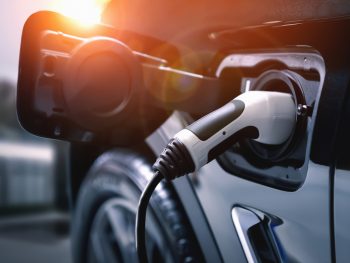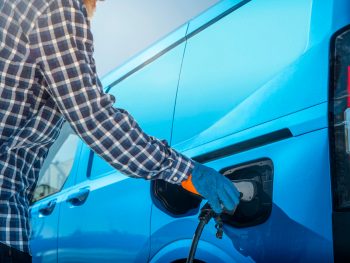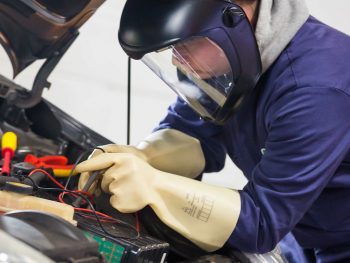Government urged not to U-turn on EV transition
Trade body ChargeUK has called on Prime Minister Rishi Sunak to “stand firm” on the transition to electric vehicles amid mounting concerns of a U-turn on targets.

ChargeUK says watering down the original ambitions of the ZEV mandate will put billions of pounds of investment, thousands of new and green jobs and the supply of second-hand EVs at risk
While the ZEV mandate is due to take effect from 2024, setting binding targets for zero-emission car and van production, reports suggest policies could be watered down on the back of lobbying by carmakers. According to Politico, Business and Trade Secretary Kemi Badenoch has taken up the issue with Cabinet colleagues after hearing reports from carmakers on the difficulties of meeting the rules amid softening EV demand and the concerns over a lack of progress in charging infrastructure.
Now, ChargeUK, whose 23 members are investing over £6bn by 2030 in rolling out EV charging infrastructure, has warned of the implications of any rowback, which would jeopardise such investment and related job creation. They also warn that uncertainty would threaten the Government’s ambition to deliver a world-class charging infrastructure, which is absolutely fundamental to delivering net zero road transport.
Instead, they have highlighted the need for certainty to support investment, jobs and the wider transition to electric transport.
The ChargeUK letter (see full text here) states: “Watering down the original ambitions of the ZEV mandate will mean billions of pounds of investment, thousands of new and green jobs and the supply of second-hand EVs are put at risk. This EV supply and the resultant second-hand EV market are vital to helping reduce the cost of driving for people across the country and can only be realised with a clear ZEV mandate.”
Meanwhile, concerns remain over the longstanding 2030 EV sales deadline. On Monday, The Sun revealed its ‘five point plan to protect drivers from a rush to net zero’ which included a call for the 2030 ban on new diesel and petrol cars and vans to be “delayed until the nation is prepared”. Meanwhile, over 40 Tory MPs and peers have signed a letter to Rishi Sunak, urging him to put the ban back until 2035 as they warn it would “do grave harm to the economy”.
However, while the PM has announced moves against ‘anti-motorist’ policies such as low traffic neighbourhoods and 20mph speed limits, he told The Sunday Telegraph: “The 2030 target has been our policy for a long time and continues to be. We are not considering a delay to that date.”
A recent progress report from the Climate Change Committee (CCC) shows just why a cast-iron commitment to the ICE ban is needed, after it said that “Delivering the 2030 phase-out of new conventional car and van sales is vital to meeting the UK’s decarbonisation pathway”.
Published late June 2023, the report from the Government’s own eco advisers said the Government had made a number of strong commitments, notably on the 2030 ICE plans.
But they warned that the UK needs to radically ramp up its work on tackling climate change to meet decarbonisation targets. The committee also stressed that their confidence in the UK meeting its goals from 2030 onwards was now markedly less than in their 2022 assessment and that the UK had lost its leadership position.
Instead, advisors actually called for more concerted action in the ICE ban, such as potentially including plug-in hybrid cars, incentivising manufacturers to reduce the size and weight of vehicles and making sure the ZEV mandate is in place from 2024.
Failure to stand firm will damage UK competitiveness and fleet investment plans

FleetCheck has warned that changes to EV transition plans could jeopardise fleet investment in eLCVs
Campaign group FairCharge has warned of the implications for investment in the UK in the event of any weakening of the 2030 plans. Founder Quentin Willson said: “The UK has a choice in the global race to stay competitive. To have a strong growth agenda, policies need to be firm, and commitments must be kept. Without these policies and regulations, the UK will be faced with just managing the decline of its motor industry.”
And FleetCheck warned last week that ambivalence over the 2030 deadline was “damaging for fleets”.
Peter Golding, managing director at the fleet software provider, said that playing games with policy would have direct consequences for businesses.
“It could mean, for example, company boards up and down the country asking their fleet managers whether electrification is still the way to go and could send shudders through residual values for EVs, which are at least partially predicated on electric power becoming the market norm quite quickly.”
He also warned that any rowback could be especially damaging for the adoption of electric vans in the short and medium term.
“The truth is that many businesses already have huge doubts about the practicalities of electric vans and won’t need much of an excuse to kick the electrification can down the road. Introducing any element of doubt into government policy is almost certainly going to slow electric van adoption. It’s that simple.”
The BVRLA has also stressed that the fleet and mobility services industry remains committed to rapid decarbonisation – and warned of the impact of a U-turn.
Chief executive Gerry Keaney said: “Speculation over deadlines saps confidence and breeds uncertainty. We have a phase-out plan… let’s stick with it.
“Meeting the phase-out target will require sustained effort and investment. Businesses need clarity on what is required and confidence that the goalposts are not going to shift. Abandoning the phase-out plan at this stage would create widespread uncertainty and distrust, causing progress to stall or even reverse.”
IMI warns of need for EV training regardless of ICE deadline

The IMI says investment in EV technician training must not be paused
Steve Nash, CEO of the Institute of the Motor Industry (IMI), has urged the automotive sector to keep its eye on the ball for EV training, regardless of the ICE deadline, as he warned of the need to maintain investment.
“Our latest data already shows that we are already behind the trajectory needed to have an automotive aftermarket workforce EV-ready. The number of newly qualified EV technicians in the first three months of this year is actually 10% lower than the same period in 2022. Even more concerning is our projection that for the second quarter there will be a decline of 31% in technicians obtaining EV qualifications compared to quarter 2 2022.
“The IMI predicts that by 2030 the UK will require 107,000 IMI TechSafe qualified technicians to meet the evolving demands of the growing parc of electric vehicles. This figure rises to 139,000 by 2032, with our projections indicating a potential shortfall of 25,000 technicians if the current trends persist.
“Any change in government strategy over the 2030 deadline MUST NOT, therefore mean investment in training can be paused.”

